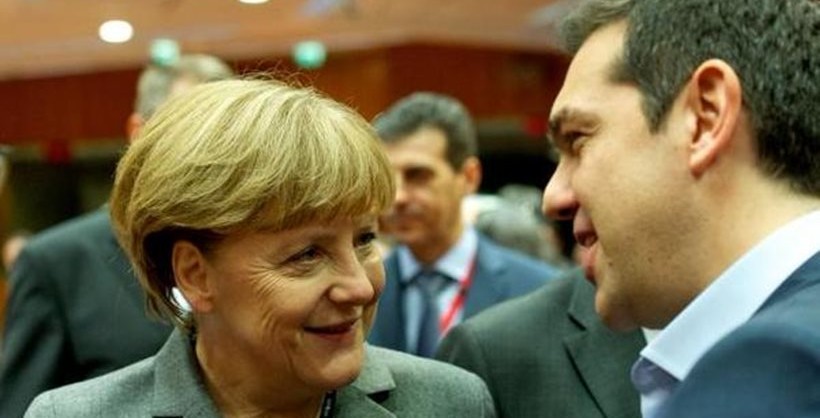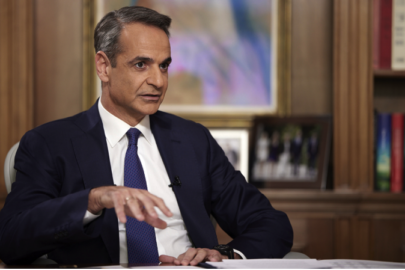According to Bloomberg, a 50-minute phone conversation between German Chancellor Angela Merkel and newly elected Greek PM Alexis Tsipras — their first substantive exchange since the latter’s election on Jan. 25 — reportedly brought the 40-year-old leftist leader “back to reality”.
Merkel, Bloomberg states, explained to Tsipras what an aide referred to as “reality”. There wasn’t much time to reach the deal needed to keep Greece afloat and Germany wasn’t going to budge.
Then, Tsipras tweeted that they had forged an interest “in finding a mutually beneficial solution.” The next day, finance ministers struck a provisional deal in Brussels to keep aid flowing.
After a month in office, Bloomberg continues, Tsipras and Greek FinMin Yanis Varoufakis largely shelved the promises that got them elected, the pledges that irritated key euro-area partners.
In return, they got a four-month bailout extension and the certainty they’ll be back on the edge of a “financial abyss” before the first half of 2015 is over.
According to the report, a senior fellow at the Brookings Institution and a professor at the University of Piraeus in Athens stated that “they were amateurs, but they are adapting … the negotiation showed that Greece had no leverage.”
For all the political fireworks, investors counted on Tsipras bowing to that fact. Greek 10-year bond yields closed at 9.1 percent the day after his election. The day of the Feb. 20 agreement, they stood at 9.9 percent.
Bloomberg estimates that the learning curve was apparent from their first days in office. Tsipras was forced to issue a statement in his first week promising Greece would pay its bills. That came a day after Varoufakis rattled markets by declaring his willingness to walk away from aid rather than submit to more austerity.
While Greece had already abandoned demands for a debt writedown, last week’s U-turn pushed back the timetable for raising the minimum wage and compromised on freeing the country from creditor institutions.
Furthermore, according to the report, when finance ministers’ talks broke down in Brussels on Feb. 16, Varoufakis termed the euro area’s proposal to extend existing bailout commitments “absurd” and “unacceptable.”
Tsipras’s call to Merkel set the stage for an agreement.
As talks deteriorated in the run-up to the 11th hour agreement, there were no figures and no commitments and people stopped listening, an official said.
After securing approval from euro peers for his plans to collect more tax, consolidate pension funds and maintain state-asset sales, Tsipras declared “victory” against austerity. He now must keep onside his party faithful, says Bloomberg.
Furthermore, the news agency cited a statement of the Greek Minister of Finance made on Feb. 25. “I’m pretty confident we won’t have a cash-flow problem, because we all struggled very hard through long hours of discussions with our partners, with institutions to come to this stage”.
The article also includes a statement by the German Finance Minister Wolfgang Schauble: “Now the question is whether one can trust the assurances of the Greek government or not? One must understand that there are many doubts in Germany.”




































